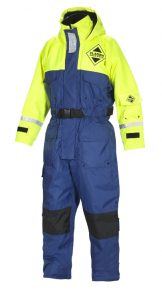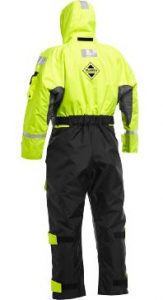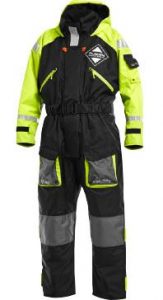With OneOcean practical courses running twelve months of the year the question of appropriate clothing for students on our courses is one that arises all the time. Over the years we have advised our students to wear thermals, in several layers, with an outer layer covered with waterproofs.
This was fine until the Mecal the certifying authority for our charter sailing vessel Tiger 2, insisted that all charterers wore an immersion suit approved to ISO 15027:1 (Constant Wear Immersion Suit). We were left with a simple choice: either purchase enough immersion suits for every student, making sure we have enough different sizes to fit all, or not to run any sailing courses between 1st November and 1st March nor when the sea temperature was below 10ºC.
I decided to pull the February course and reschedule for late March when the sea temperature would be higher than the required 10ºC.
In the event, my students, all of them wonderful, stated that they wanted to buy the immersion suits for themselves and wanted the course to continue. I purchased my own and negotiated a small discount for each of my four students.
I have to say I AM impressed. The Fladen Rescue System One Piece is warm, comfortable, very easy to wear whilst working the deck, and after eight hours in the open and inclement elements not one of us were cold in any way. They are not breathable so there is a likelihood of sweat forming on the inner when working hard but essentially I have to say this kit puts all my labelled sailing clothing in second place as far as kit for cold weather, winter and inclement weather kit is concerned. I can see myself using this all year round and at a price of just under £100 anyone who sails in UK waters should include it as part of their kit.
OneOcean’s sister company OneOceanTec now sells Fladen products so take a look at the Fladen Rescue System One Piece at https://www.oneoceantec.co.uk/product-category/fladen/


